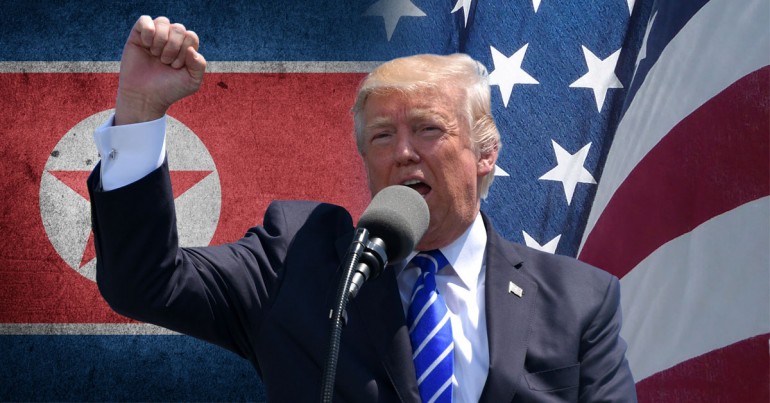
Tin hats on
For most of last week investors were filling their metaphorical sandbags in preparation for something to go horribly wrong in a thermonuclear sort of way. The dialogue of bluster between Korea’s Kim Jong Un and his opposite number in the States was becoming ever more heated. It culminated in Donald Trump’s promise of “fire and fury like the world has never seen” if Mr Kim were to make any more threats against the United States. The governor of Guam, a US territory in the Pacific, issued residents with survival pamphlets.
Although investors struggled to believe that either president would put his warheads where his mouth was, they nevertheless took steps to safeguard their assets. For four days the Swiss franc and the Japanese yen led the major currency field, strengthening by well over 1% against sterling.
Tin hats off
By the end of the week it was beginning to look as though the minders in Washington and Pyongyang had reined in their volatile charges. The US national security advisor HR McMaster told ABC news that “I think we’re not closer to war than a week ago” and CIA director Mike Pompeo said “There’s nothing imminent today”. Whilst their comments fell well short of a pledge to avoid a shooting war investors took heart from the sentiment and started to move out of the safe-haven currencies and back into ones that offered better returns.
Between Friday and Monday the yen and the franc gave back half of their earlier gains. For the week as a whole the Japanese currency added a net yen and a half against sterling while the franc held onto three quarters of a cent.
A Plan
Chancellor Philipp Hammond and trade minister Liam Fox penned an article for the Sunday Times, jointly setting out their plan for Britain to leave the EU single market and the customs union in March 2019. At the same time they said they would ask for “a time-limited interim period” because “businesses need to have confidence that there will not be a cliff-edge when we leave the EU in just over 20 months’ time”.
The news went down reasonably well with investors, inasmuch as they did not react by selling the pound. Nevertheless it was not a great week for sterling, which lost half a euro cent and almost one US cent and fell by an average of -0.4% against the other dozen most actively-traded currencies.
The good news
Australian deputy prime minister Barnaby Joyce discovered to his surprise that, although he was born in Tamworth, New South Wales, he is also automatically a citizen of New Zealand because his father was a Kiwi.
The bad news
Dual citizenship disqualifies him from being a member of parliament. This is inconvenient for prime minister Malcolm Turnbull, whose coalition government has a majority of one. That, in turn, is proving to be inconvenient for the Australian dollar. It is unchanged on the week against sterling. It is also steady against the NZ dollar, which has been held back by the Reserve Bank of New Zealand’s comment that “a lower New Zealand dollar is needed to increase… inflation and help deliver more balanced growth”.
Sarah, Senior Account Manager at Moneycorp
Moneycorp is one of the largest international payment companies supporting over 90 currencies. Last year Moneycorp traded over £22.6 billion worth of international money transfers. Find out how Moneycorp can help you with your international transfer here.





